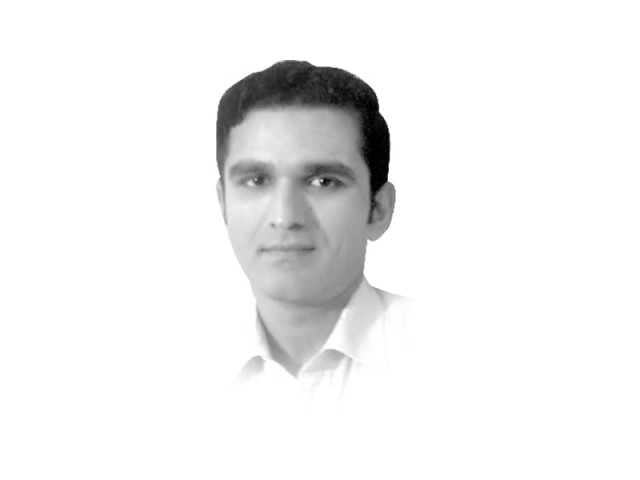Our ‘punctured’ politicians
PTI claimed theirs is a ‘different’ party, will bring — tabdeeli. But it's antics showed it's a party like any other

The writer teaches at IT University Lahore and is the author of A Princely Affair: The Accession and Integration of the Princely States of Pakistan, 1947-55. He tweets at @BangashYK.
First, there was a serious problem in the manner in which politics was conducted by the All-India Muslim League before the creation of Pakistan, and which has continued to affect the country. The politics of representation in British India led the Muslim League to demand simply impossible things. From the outset, in its attempt to safeguard Muslim rights, the League asked for more seats than the percentage of Muslims in India. With Muslims forming just about 25 per cent of the population, the League initially demanded 33.33 per cent of the seats (at a time when its whole membership had not crossed 2,000), and by the end of the British Raj, was demanding parity. While these demands could have been adjusted in a new system, the British had introduced parliamentary democracy in India and such ideas were incompatible with it. Therefore, there was no congruency between the system and the thinking of the League. With such a background, trying to run a country on the basis of parliamentary democracy, something which the founding party did not accept, was bound to fail.
Secondly, democracy is a process which evolves over time and just cannot achieve its objectives overnight. Democratic politics in Pakistan had never been allowed to germinate. Pakistan was a pseudo-democracy at best till 1958 when the elite-led system was removed by dictatorship, and then the country fell apart because the ruling junta did not want to accept the people’s verdict in 1970. After that there was a brief hiatus but that too ended in 1977. Since then, while democracy has officially existed between 1988 and 1999, and then from 2008 onwards, it has been under the close watch of the establishment. Therefore, politicians have hardly had a chance to play politics in its proper manner. If politicians aren’t allowed to do what they have been elected to do, then we can hardly expect them not to indulge in corruption, which is an easy way to spend time. For example, I’d really like to criticise the present government for its policies and corruption, but when I know that even the prime minister is helpless a lot of the times, then why should I hold him responsible for decisions he has little control over and for the power he does not have? Our politicians have indeed been ‘punctured’ in this manner.
Thirdly, as a country and people, we have come to equate governance with ‘my benefit’. If ‘my’ interests are served, then I do not care who is governing — that person is indeed good. This notion took hold during the British Raj when the rather paternalistic rule of the Punjab school and the Sandeman system reposed immense power in the hands of certain people. That they were benign, did a lot of good work and were not corrupt even though they had dictatorial powers was just good chance, not a natural product of this system. However, we began to understand this as a success of dictatorship and began to undermine the idea of democracy where personal benefit is limited.
So what should we do? The actions of the PTI, a bit like the Muslim League after independence and the PPP in the 1970s, has shown that the rot is deep and that radical, long-term measures need to be taken to stabilise Pakistan. We need a new national consensus, and it is going to be hard work to develop that. But we must begin now.
Published in The Express Tribune, July 15th, 2015.
Like Opinion & Editorial on Facebook, follow @ETOpEd on Twitter to receive all updates on all our daily pieces.
















COMMENTS
Comments are moderated and generally will be posted if they are on-topic and not abusive.
For more information, please see our Comments FAQ